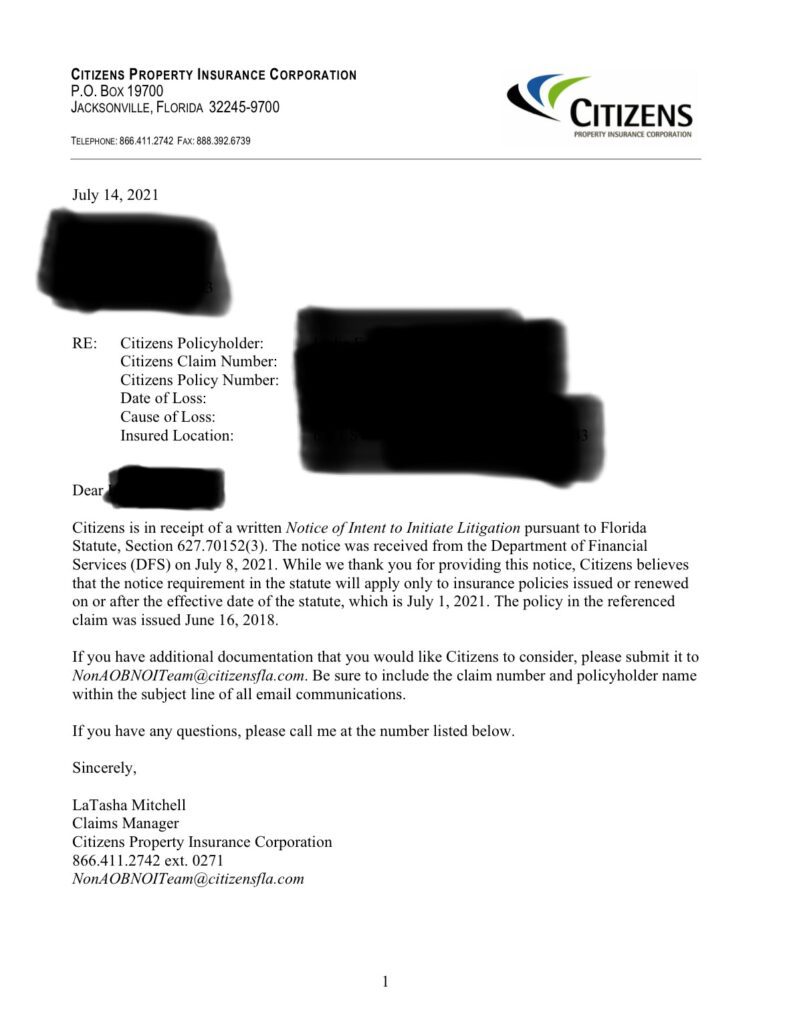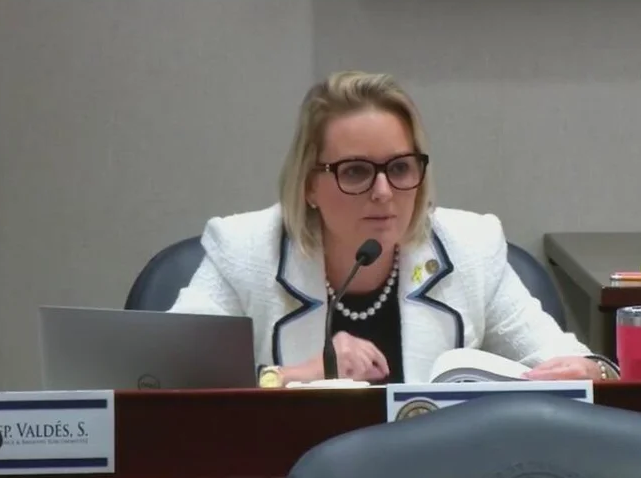Michael Cassel forwarded the above letter from Citizens Property Insurance Company which accepts the position that Florida’s new pre-suit notice requirements do not apply to policies issued before July 1, 2021. There is previous case precedent that supports this position and Citizens is not doing this out of the goodness of their hearts.
Generally, a statutory amendment which requires an insured to provide a presuit notice to the insurer before filing an action for overdue benefits constitutes a substantive change to statute and cannot be applied retroactively to policies issued before the effective date of amendment. In analyzing whether a statute can be applied retroactively to an insurance policy, courts look at the date the insurance policy was issued and not the date that the suit was filed or the accident occurred, because “the statute in effect at the time an insurance contract is executed governs substantive issues arising in connection with that contract.”1
Even if a statute is not strictly applicable to policy entered before the Florida legislature passed the statute, the statute still represents public policy which the court may not ignore. A court may invalidate a policy provision as against public policy. A Florida appellate court noted:
It is generally held that the renewal of a contract of insurance constitutes the making of a new contract for the purpose of incorporating into the policy changes in the statutes regulating insurance contracts.” Metropolitan Prop. & Liab. Ins. Co. v. Gray, 446 So. 2d 216, 218 (Fla. 5th DCA 1984); see May v. State Farm Mut. Auto. Ins. Co., 430 So. 2d 999, 1001 (Fla. 4th DCA 1983) (“It is the law in this state that a contract of annually renewable insurance forms a new contract at each renewal for the purpose of incorporating into the contract the statutory provisions enacted after the creation of the original contract relationship.” (quoting Thieme v. Union Labor Life Ins. Co., 138 N.E.2d 857, 860 (1956))); see also Marchesano v. Nationwide Prop. & Cas. Ins. Co., 506 So. 2d 410, 413 (Fla. 1987) (“The general rule in Florida that upon each renewal of an insurance policy an entirely new and independent contract of insurance is created [and] [a]n insurance policy is normally renewed upon the payment of a new premium.”); Adams v. Aetna Cas. & Sur. Co., 574 So. 2d 1142, 1148 (Fla. 1st DCA 1991) (observing that “when each of the policies were renewed after October 1, 1982, it became a new contract required to conform to the newly-amended law, and [insurer’s] obligations and [insured’s] correlative rights regarding statutorily-required UM/UIM coverage necessarily became an inherent part of the renewal policy”); Landi v. Nationwide Mut. Fire Ins. Co., 529 So. 2d 1170, 1171 (Fla. 2d DCA 1988) (observing that the policy at issue had been renewed after the enactment of certain statutory requirements and that “[t]he general rule in Florida is that upon each renewal of an insurance policy an entirely new and independent contract of insurance is created” (quoting Marchesano, 506 So. 2d at 413)); see generally 12 J. Appleman, Insurance Law and Practice, § 7041, at 175-76 (1981) (observing “where an existing policy is renewed, although the results vary, the better rule is to regard the statute as applicable to the extended contract”). By the time Bell rendered the services at issue to Beckerman, section 627.94071 had been in effect for some thirteen years and her policy had been repeatedly “renewed” with full payment of all the premiums. Under the principle stated by these authorities, the statute therefore applies to the present controversy.2
Where parties enter into a contract upon a subject which is surrounded by statutory limitations and requirements, like insurance, they are presumed to have entered into their engagements with reference to those statutes.3
Hopefully, other insurers in litigation with their own customers will take the same position as Citizens.
Thought For The Day
Public policy is a study in imperfection. It involves imperfect people, with imperfect information, facing deeply imperfect choices – so it’s not surprising that they’re getting imperfect results.
—Jake Sullivan
_______________________________________
1 Hassen v. State Farm Mut. Auto. Ins. Co., 674 So. 2d 106, 108 (Fla. 1996); see also Lumbermens Mut. Cas. Co. v. Ceballos, 440 So. 2d 612, 613 (Fla. 3d DCA 1983) (holding that a liability policy is governed by the law in effect at the time the policy is issued, not the law in effect at the time a claim arises); Hausler v. State Farm Mut. Auto. Ins. Co., 374 So. 2d 1037, 1038 (Fla. 2d DCA 1979) (holding that the date of the accident does not determine the law that is applicable to a dispute).
2 Bell Care Nurses Registry v. Continental Cas. Co., 25 So. 3d 13 (Fla. 3d DCA 2009).
3 Citizens Ins. Co. v. Barnes, 124 So. 722, 723 (Fla. 1929); Weldon v. All American Life Ins. Co., 605 So. 2d 911 (Fla. 2d DCA 1992).




